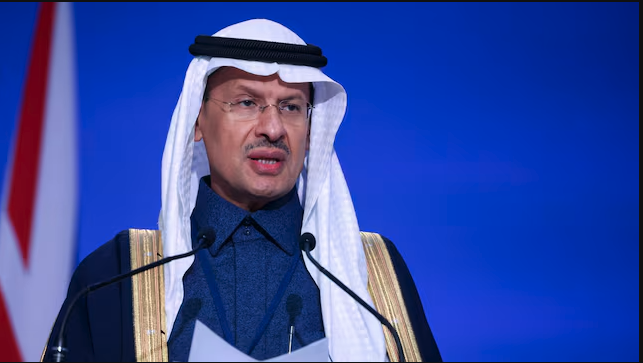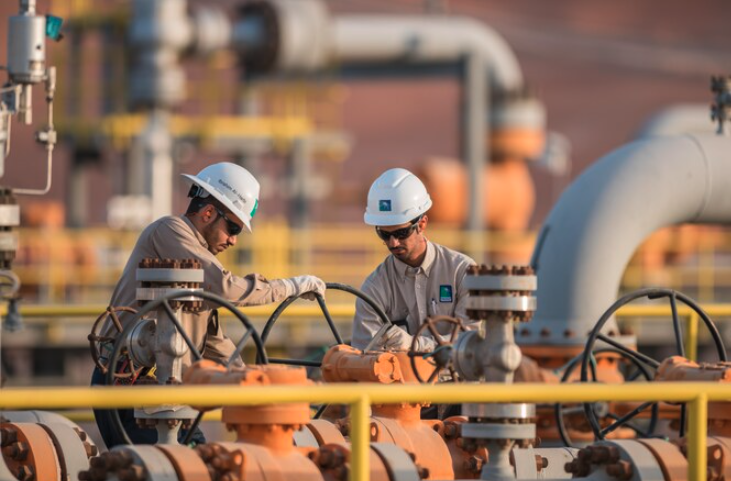Saudi Arabia’s business landscape has become a magnet for regional and global startups, with numerous growing companies targeting the thriving market.
Since the beginning of 2024, the Kingdom has seen startups from various sectors initiate their expansion plans.
In the artificial intelligence sector, Saudi Arabia has drawn interest from Singaporean startup Dyna.AI, which is currently in the process of registering locally.
With operations in seven countries, Dyna.AI is shifting its focus to the Saudi fintech market, aiming to establish a local presence with a domestic office.
“We are already in the process of securing our registration, which we hope will be completed within the next quarter. The feedback from our partners in Saudi Arabia has been extremely encouraging, and we are looking forward to having a physical presence very soon,” Tomas Skoumal, chairman of Dyna.AI, told Arab News.
The company’s long-term vision aims to influence the Saudi financial services sector, which is poised to benefit substantially from advancements in AI. Dyna.AI’s expansion strategy in Saudi Arabia includes building a strong local presence and working closely with governmental bodies.
Discussing the current market landscape, Skoumal remarked: “The AI sector around the world, and in Saudi Arabia, is still at an early stage. However, the progress of the technology is fascinating, with incredible advances in very short periods.”
When asked about the importance of expanding to the Saudi market, Skoumal said: “AI is expected to create a multibillion-dollar impact on the Saudi economy by 2030, and by investing early in the Kingdom, we believe that we will be well-positioned to empower work and enrich lives.”
Fintech
The Saudi fintech sector has seen its fair share of new entrants during the first quarter of the year, with US-based MoneyHash being the most recent mover. Established in late 2020 by Nader Abdelrazik, Mustafa Eid, and Anisha Sekar, MoneyHash has set its sights on the Saudi market following a successful $4.5 million seed funding round in February.
The company aims to address key challenges in Saudi Arabia’s payment sector, helping businesses recover lost revenue due to payment failures and infrastructure complexities.
In an interview with Arab News, Abdelrazik, the company’s CEO, outlined the firm’s strategy to establish MoneyHash as a frontrunner in this pivotal market. “We are mainly focused on penetrating the market further, relying on our previous success and trusted brand as a payment infrastructure,” Abdelrazik told Arab News.
Abdelrazik aims to deepen the company’s market penetration in Saudi Arabia, leveraging its established reputation and success as a trusted payment infrastructure provider. While the CEO was reticent about sharing specific details, he emphasized the company’s ambitious and high standards, indicating a robust strategy to solidify its regional presence further.
Looking at the long-term vision, MoneyHash seeks to play a defining role in its sector within the Saudi market, Abdelrazik said. Viewing the Kingdom as a pivotal hub, the company plans to develop a comprehensive ecosystem of payment tech solutions and innovations. “We raised $7.5 million to date between our pre-seed and seed funding rounds. We have active customers in Saudi already, including prominent players like Foodics, and the latest investment will help us build a solution hub in Saudi and have a dedicated team for the market,” he added.
The company’s main reason for expanding to the Kingdom is the significant opportunities the market offers. “The Saudi market is rapidly evolving, a large consumer and business market, and has a lot of ecosystem ingredients to drive regional innovation. I believe all companies expanding in MENA (Middle East and North Africa) and the GCC (Gulf Cooperation Council) will probably anchor Saudi as the hub of its expansion in the next 10 years,” Abdelrazik stated.
“There is a lot happening in payments (in the Saudi market), and a lot will happen. It is a very fast-evolving and complex space, and we are leading the orchestration category in it. We are working on staying in the lead and building a success story in the Kingdom on providing complex and sophisticated tech solutions,” he added.
Ride-hailing
Saudi Arabia’s vibrant business environment has also captured the interest of international companies, with Estonian ride-hailing giant Bolt announcing plans to expand its operations in the country. Established in 2013, the firm has become a prominent player in the global mobility industry, operating in 45 countries and 500 cities. Its current valuation is €7.4 billion ($8 billion).
In an interview with Arab News, Martin Villig, chairman and co-founder of Bolt, expressed his company’s keen interest in the rapidly growing Saudi market.
“We have operated in Saudi Arabia since 2017 completing millions of trips with hundreds of thousands of drivers signed up to the platform. Our business in Saudi Arabia has grown 10 times over in the past three years and we now have operations in all cities across the country,” Villig told Arab News.
“However, we still see room for growth. Our short-term objective is to continue on that growth trajectory and increase both the number of trips completed and the number of drivers signed up to the platform,” he added.
When inquired about the significance of expanding into the Saudi market, Villig responded: “The thriving tourism sector, as well as the increasing presence of business and entertainment hubs, makes Saudi Arabia a prime opportunity for the ride-hailing sector to grow and is emblematic of wider opportunity across MENA.”
He explained: “Over 27 million foreign tourists arrived in Saudi Arabia in 2023 and Bolt is one of the mobility apps that allows these tourists to move around, ensuring that their experience moving around Saudi Arabia is as seamless and pleasant as possible.”
He added: “Private companies like Bolt can play a crucial role in supporting Vision 2030 by aligning its strategies and operations with the Kingdom’s goals and priorities. Bolt can drive innovation and technological advancement by developing and deploying cutting-edge solutions that address the Kingdom’s mobility challenges and opportunities.”
Villig emphasized their company’s extensive experience working with cities across more than 45 countries in Europe, Africa, the Middle East, and beyond, presenting unique mobility challenges. He believes this experience positions them as the ideal partner for Saudi government entities to collaborate with in enhancing the country's existing transport networks.
Villig said: “Doing so, we will create earning opportunities for drivers using the Bolt platform and make it easier and more affordable for people to move around their city.”
The Kingdom’s national vision, strong market conditions, and growing tech infrastructure have been catalysts in bringing these companies and many more like them to the country. Being the largest economy in the MENA region, Saudi Arabia is set to continue attracting regional and global startups to its burgeoning market.

































